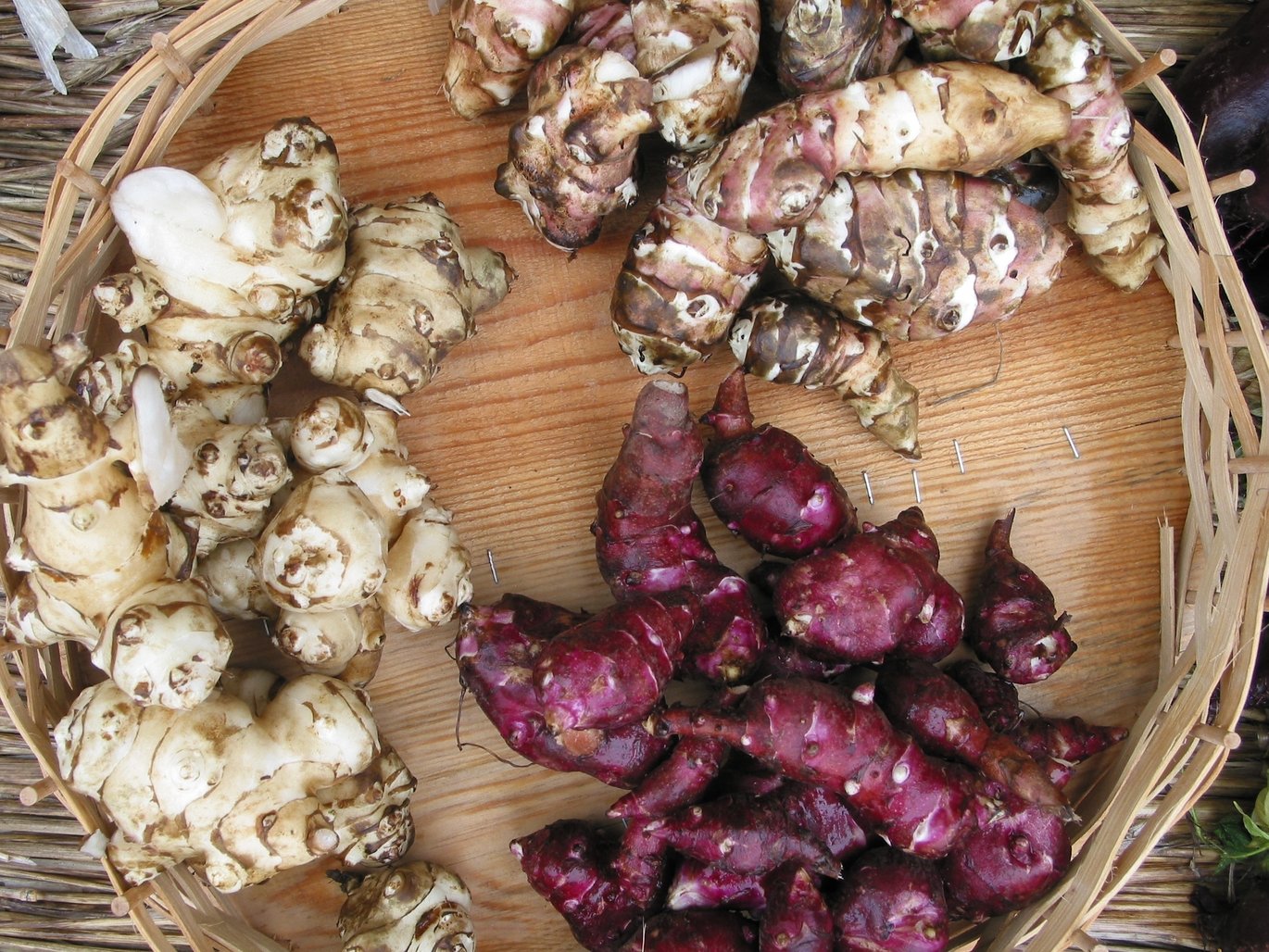Saving roots for posterity
Clones of Jerusalem artichoke and horseradish are as a precaution being stored at two different locations in Denmark. Aarhus University is responsible for their safekeeping.

Remember to take a backup! This is what you are told when you save something onto your computer disk. The same goes for fruit and vegetables. With a new project funded by The Danish AgriFish Agency under the Ministry of Food, Agriculture and Fisheries, scientists at Aarhus University will ensure that selected varieties of Jerusalem artichoke and horseradish are stored as a “backup” and also used as a showcase to the public.
To ensure that valuable plant genetic resources are not lost forever, a national collection of hops, Jerusalem artichokes, horseradish, rhubarb and shallots – so-called vegetatively propagated vegetables – is being grown outdoors at Aarhus University’s research centre in Aarslev. Backups of varieties of Jerusalem artichoke and horseradish in the form of clones have previously been stored in the Organic Garden in Odder.
- To improve their safety it is important that the clone collections are also located elsewhere in the country, says Merete Brødsgaard Henriksen from Aarhus University.
For safety's sake
Storage in the open carries a significant risk as the plants will be more susceptible to disease, for example, and may consequently be lost. But by having duplicate collections elsewhere, the chances of survival of the species are better. If anything goes wrong in one place, you can restore using the backup from another place.
Because the Organic Garden has gone bankrupt, it is necessary to create another repository for the clones of Jerusalem artichoke and horseradish. The choice fell on the open garden at Krogerup Avlsgaard near Humlebæk. The farm is owned by the Ministry of Environment, but the land is leased by ‘Aarstiderne’, a supplier of organic products.
- We emphasised that the clone collection had to be placed somewhere that would be attractive to the public as communication is an important part of the project, says Merete Brødsgaard Henriksen.
At the farm the Jerusalem artichokes and horseradish will not only have a safe home. They will also get lots of visitors. Visitors will be able to see the plants, learn about their history and taste the healthy and delicious products.
Active and popular garden
The project will establish 18 clones/varieties of Jerusalem artichoke and 10 clones/varieties of horseradish at Krogerup Avlsgaard. The garden is a popular destination and gets around 40,000 visitors per year. Most of the activities are about cultivating the land and cooking. The visitors range from school children and families to trainee chefs, managers and gardening enthusiasts.
Besides increasing the chances of survival of the clone collection, the aim of the project is to promote consumer choice and inspire healthy eating habits. In addition, vegetable growers will learn about different varieties with different harvesting times, so they can extend the growing season by growing more than one variety.
The three-year project is a collaboration with the organic food business ‘Aarstiderne’ and AgroTech.
For more information: Merete Brødsgaard Henriksen, Department of Food Science, e-mail: merete.brodsgaard@agrsci.dk, telephone: +45 8715 8332
